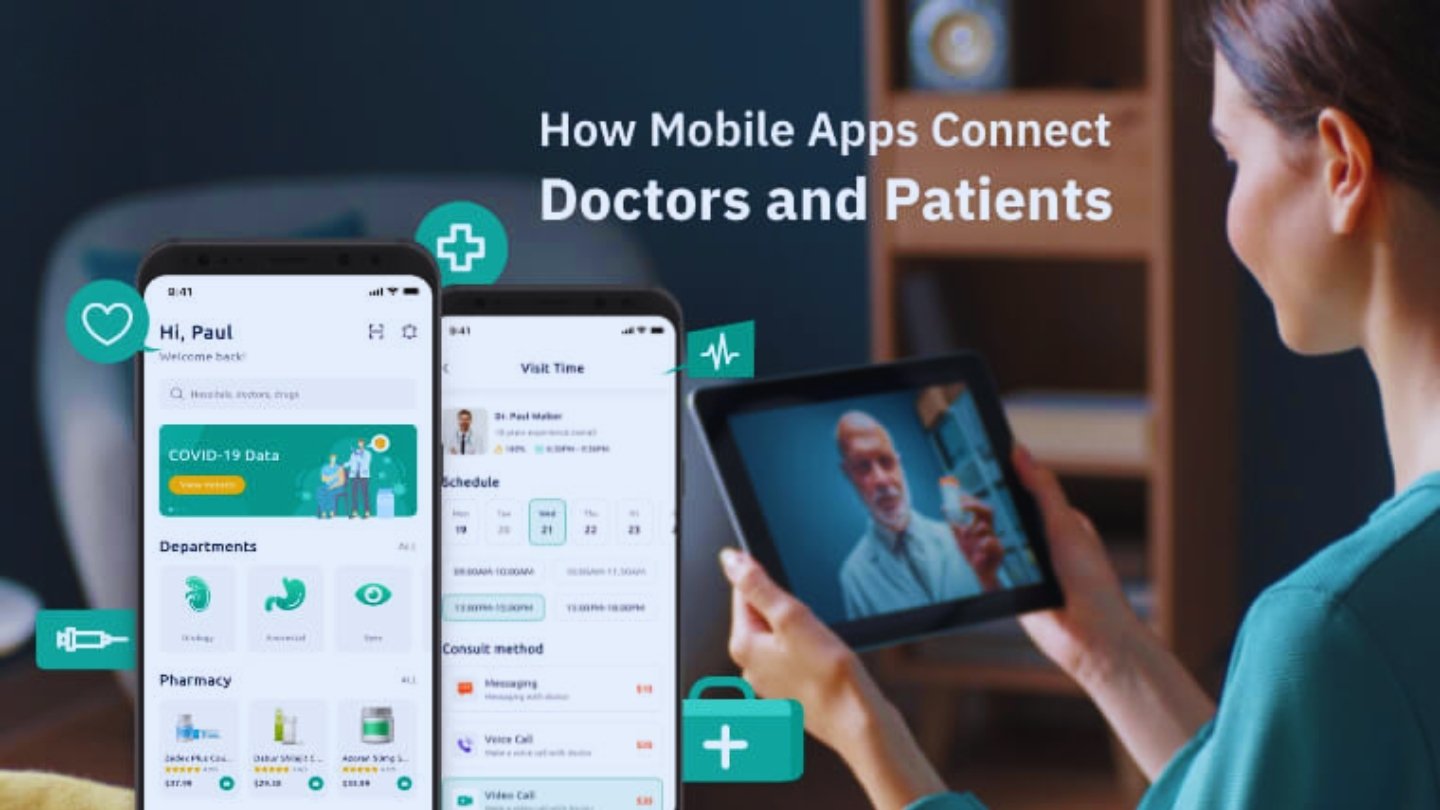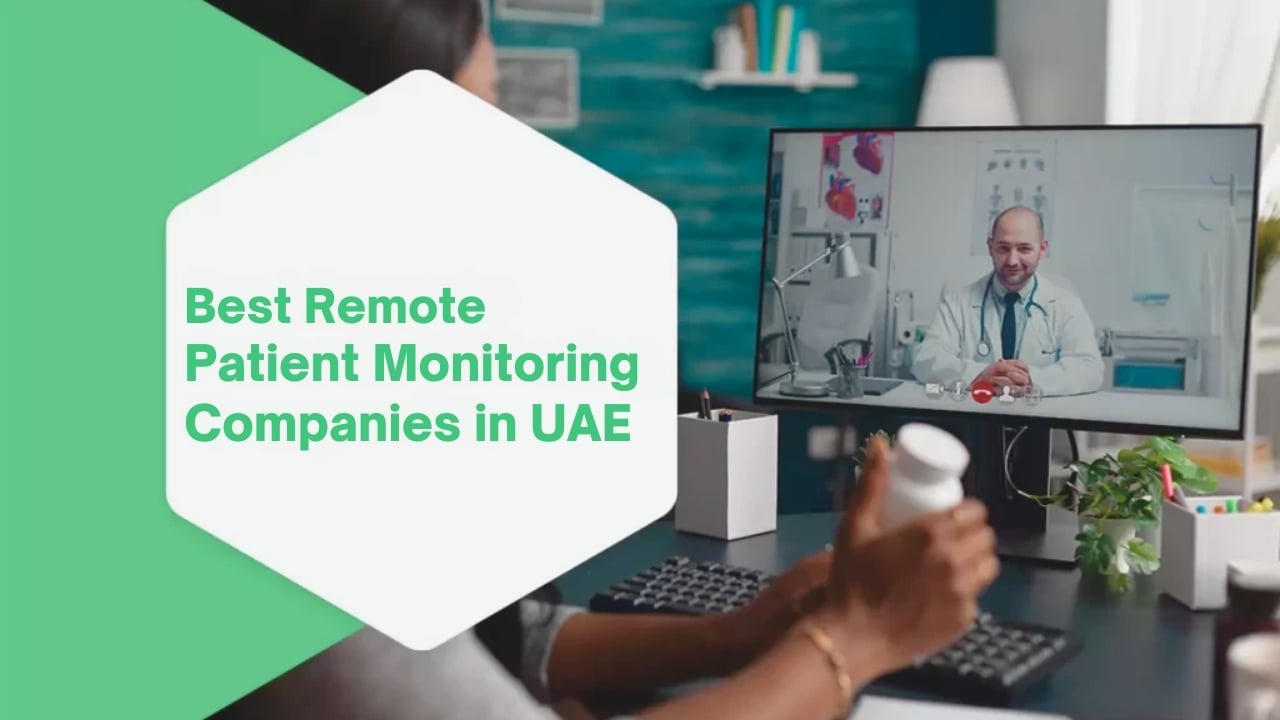
Top APIs and Tools Used in 2025 Telemedicine App Development?

Introduction
In 2025, Saudi Arabia is rapidly emerging as a digital health leader in the Middle East, backed by its Vision 2030 strategy. Telemedicine is a key driver in this transformation, offering scalable healthcare access, especially to underserved rural communities and a growing urban population that demands convenience. Telemedicine app development in Saudi Arabia is now a strategic necessity for hospitals, clinics, and private practices. But behind every successful telemedicine application lies a robust stack of APIs and development tools that ensure performance, security, interoperability, and user satisfaction.
From real-time video consultation APIs to AI-based diagnosis tools, the telemedicine application development landscape has matured. Developers and businesses must understand which tools are best suited to handle electronic health records (EHR), payment integration, scheduling systems, and data security in a compliant manner. In this blog, we explore the top APIs and tools used in 2025 telemedicine app development, focusing on their relevance and functionality in the context of Saudi Arabia’s regulatory environment and patient expectations.
Whether you’re a startup planning a virtual care platform or a healthcare provider looking to modernize patient interactions, choosing the right APIs and development frameworks is crucial. Partnering with an experienced telemedicine app development company ensures these tools are integrated efficiently for long-term success.
Why APIs and Tools Matter in Telemedicine App Development
Application Programming Interfaces (APIs) and development tools are the backbone of telemedicine platforms. APIs allow your telemedicine application to communicate with other software systems like payment gateways, pharmacy management systems, and EHRs. Meanwhile, tools like SDKs, development frameworks, and CI/CD platforms streamline the entire development lifecycle.
In 2025, Saudi Arabia’s Ministry of Health (MOH) mandates telemedicine platforms to comply with health data privacy regulations similar to HIPAA and GDPR. That means every API or tool integrated into your platform must support secure data encryption, authentication protocols, and audit logs. Moreover, users now expect seamless experiences across mobile and desktop, real-time consultations, multilingual support, and easy navigation. The only way to meet these expectations while staying compliant is by choosing the right technology stack.
For any serious telemedicine app development project, success hinges not just on UI/UX but on how well APIs are orchestrated in the backend. That’s why telemedicine solutions today are built like modular ecosystems where each API delivers a specific critical function.
Core Categories of APIs and Tools for Telemedicine Application Development
Video Conferencing APIs
Real-time video consultations are the heart of any telemedicine application. In 2025, APIs like Twilio, Vonage (formerly TokBox), and Agora dominate the Saudi telehealth market. These platforms offer low-latency video communication, screen sharing, and adaptive bitrate streaming, which are essential in high-resolution medical consultations.
Additionally, these APIs offer customization options to match the branding and workflow of the app. Many telemedicine app development company experts recommend Agora for its advanced AI-enhanced noise suppression and HD optimization.
Electronic Health Record (EHR) Integration APIs
APIs like Redox, Health Gorilla, and Google Cloud Healthcare API are widely used to pull and sync patient health records from multiple sources. In 2025, telemedicine app development in Saudi Arabia increasingly includes integration with MOH-certified national health registries and hospital databases.
These APIs allow developers to create a unified health record view, enabling doctors to make informed decisions during virtual consultations. Fast Healthcare Interoperability Resources (FHIR) compliance is a must, and leading telemedicine application development teams ensure their solutions support read/write permissions, version control, and secure authentication.
Appointment Scheduling APIs
Efficient appointment booking systems are essential in any telemedicine application. APIs like Calendly, Zocdoc API, and Google Calendar API have become go-to solutions. These APIs allow real-time booking, reminders, calendar sync, and conflict management. Some APIs even offer automated scheduling suggestions based on physician availability and patient time zones.
For the Saudi market, multilingual support in Arabic and English is crucial. Smart appointment tools integrated through APIs also provide analytics, helping providers optimize consultation timing and reduce patient no-shows. These scheduling features are central to streamlining both the patient experience and provider operations.
Payment Gateway APIs
Secure and seamless transactions are non-negotiable in telemedicine app development. Popular payment APIs in Saudi Arabia include Moyasar, HyperPay, PayTabs, and Stripe. These tools allow telemedicine apps to process credit cards, Mada cards, Apple Pay, and STC Pay.
They support PCI DSS compliance, fraud prevention, and multi-currency handling. A trusted telemedicine app development company will ensure that these payment APIs are fully integrated with consultation invoicing and user wallets, enabling smooth financial workflows from booking to refund.
Prescription Management and e-Pharmacy APIs
APIs like SureScripts, Truepill, and 1mg API are being adapted for the Saudi market to enable electronic prescriptions directly from within the app. These APIs allow licensed doctors to generate prescriptions and send them to partner pharmacies or deliver directly to the patient's doorstep.
In 2025, integration with pharmacy management systems is essential for medication stock verification and real-time delivery tracking. Smart eRx APIs also support drug interaction checks, dosage verification, and digital signature compliance. This makes prescription management efficient, secure, and compliant with Saudi Arabia’s drug control policies.
AI and Symptom Checker APIs
AI is powering next-gen healthcare, and tools like Infermedica, Buoy Health, and Ada Health API are widely used for symptom checking and pre-consultation triage. These APIs help patients input their symptoms and receive risk assessments before connecting with a doctor.
AI tools reduce consultation loads, help in early diagnosis, and empower users with preliminary health insights. In 2025, these APIs come with natural language processing (NLP), multi-language support, and condition-specific logic trees customized for regional health conditions. This functionality improves operational efficiency and enhances patient confidence in digital healthcare platforms.
Authentication and Security APIs
Patient data security is critical in telemedicine application development. APIs like Auth0, Okta, and Firebase Authentication offer secure sign-in options, including two-factor authentication (2FA), biometrics, and role-based access control.
In the Saudi Arabian context, these APIs help developers comply with data governance mandates. Tools also include features like session timeout, failed login tracking, and user behavior analytics to prevent misuse. These are integrated with app-level encryption standards such as TLS 1.3 and SHA-256 hashing, reinforcing the trust patients place in virtual healthcare platforms.
Chat and Messaging APIs
Asynchronous communication is another core element in telemedicine. APIs like SendBird, PubNub, and MirrorFly offer real-time chat, file sharing, message encryption, and offline sync. These messaging APIs facilitate doctor-patient communication post-consultation or during emergency care.
Chatbots integrated with these APIs can handle FAQs, symptom collection, or appointment reminders. In 2025, leading telemedicine application platforms combine messaging with AI and NLP to deliver intelligent responses, triage support, and patient education.
Cloud and Backend Infrastructure Tools
In 2025, most telemedicine apps are hosted on secure cloud platforms for scalability and speed. Tools like AWS HealthLake, Microsoft Azure for Healthcare, and Google Cloud Platform offer FHIR-compliant infrastructure, encrypted storage, and disaster recovery mechanisms.
These platforms allow your telemedicine app development company to manage traffic surges, optimize performance, and guarantee uptime. CI/CD tools like GitLab, Jenkins, and Bitbucket Pipelines are integrated to support automated testing and faster rollouts.
Table: Top APIs & Tools for Telemedicine Application Development in Saudi Arabia (2025)
|
Category |
Top APIs/Tools |
Key Features |
|
Video Conferencing |
Twilio, Agora, Vonage |
HD video, encryption, screen sharing |
|
EHR Integration |
Redox, Health Gorilla |
FHIR support, unified patient data |
|
Scheduling |
Zocdoc API, Calendly |
Real-time booking, reminders |
|
Payments |
Moyasar, HyperPay, Stripe |
PCI DSS compliance, STC Pay support |
|
Prescriptions |
SureScripts, Truepill |
eRx, digital signatures, pharmacy sync |
|
AI Symptom Checker |
Ada, Buoy Health |
NLP, risk analysis, pre-diagnosis support |
|
Authentication |
Auth0, Firebase, Okta |
2FA, user role access, biometric login |
|
Messaging |
SendBird, PubNub |
Real-time chat, chatbot integration |
|
Cloud & DevOps |
AWS, Azure, GitLab |
FHIR storage, CI/CD pipelines, auto scaling |
Conclusion
Telemedicine app development in 2025 is more advanced and complex than ever. With Saudi Arabia's healthcare sector becoming a digital frontrunner, the demand for feature-rich, compliant, and scalable telemedicine applications is booming. The success of any telemedicine application development project now depends on selecting and integrating the right APIs and tools—from secure video conferencing to smart e-prescription systems.
By understanding the critical APIs listed in this article, healthcare providers and startups can make informed technology decisions. Moreover, partnering with an experienced telemedicine app development company ensures all components—from scheduling to AI integration—are expertly managed and aligned with Saudi healthcare regulations.
Whether you're looking to build a telemedicine platform from scratch or scale an existing one, the right tech stack is your most valuable asset.
For any organization aiming to launch or upgrade a telemedicine application, these APIs and tools are not just optional—they are essential to delivering quality care in the digital era.
Know More About :- Voice Technology in Telemedicine: Hands-Free Consultations Are Here
Email :- hello@sisgain.ae
Phone No :- +971-56-848-5757
Location :- Saudi Arabia

